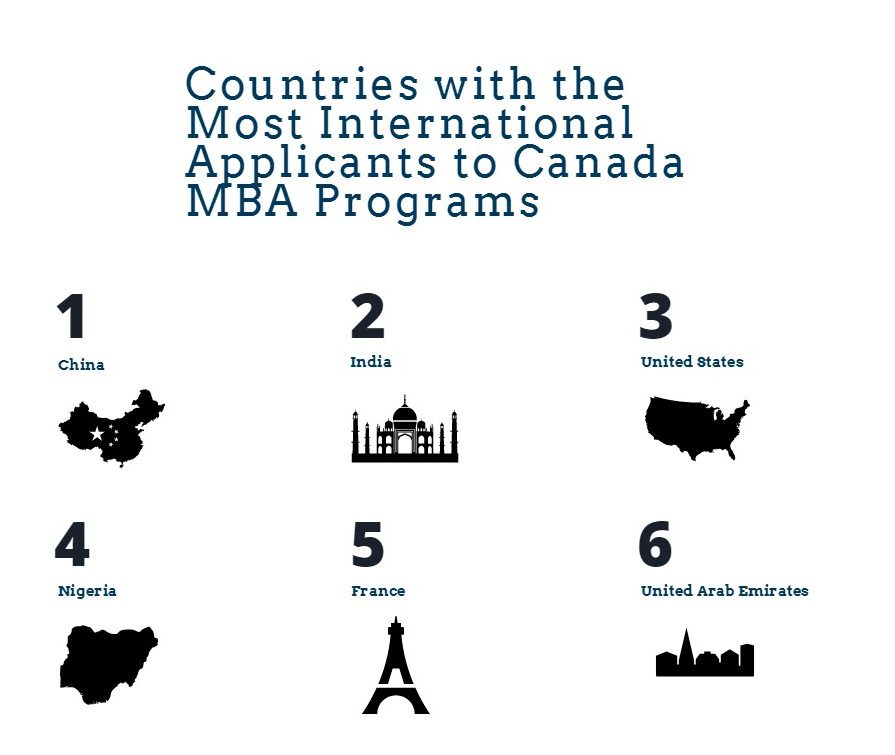Schulich Tops Forbes’ Canada Rankings

Canada: birthplace of poutine and your potential business school destination. If you’re looking at the latter, the Schulich School of Business at York University should be at the top of your list. It’s at the top of Forbes’.
The publication has ranked the business school as the best in Canada among two-year MBA programs. For all non-U.S. schools, Schulich came in fourth overall when looking at how long graduates take to make up the cost of their MBA.
Forbes‘ annual ranking analyzes what business schools are the best—and which ones are worth attending. They base their lists on a school’s return on investment, or, ROI. With this qualifier in mind, Schulich won among one-year and two-year MBA programs in Canada.
“Forbes has once again rated the Return on Investment provided by a Schulich MBA degree as one of the best in the world,” said Schulich Dean Dezsö J. Horváth, in a press release. “For MBA students, the Return on Investment they receive after graduating is a significant factor when determining the value of their degree. The latest Forbes survey captures an important statistical measure of the return on investment our MBA students can expect once they graduate.”
The school is not far from the bustle of downtown Toronto, providing an international appeal to its students, most of whom come from beyond Canada. In 2016, half of the MBA students came from Asian countries. Schulich offers a number of MBA programs, which a person can take full-time or part-time. But there’s an executive MBA and accelerated MBA too (it takes just eight months!).
Around 26 percent of applicants are accepted, so if Schulich is top of your list, you better be ready. It probably won’t be easy.
Canada’s MBA Programs are Rising

The recent release of the GMAC 2017 Prospective Students Survey Report revealed some mixed revelations. While the status of smaller U.S. school MBA programs may be up in the air, international programs, particularly in Canada, are looking rosier than ever.
Overall, schools in Canada and Europe saw a 50 percent-plus increase in application volume from international candidates, of which GMAC speculates may be a result of political turmoil, particularly in the United States. This is a direct contrast from four years prior, in which less-than half of the Canada, UK, and other European business schools were seeing international applicant growth.
In the GMAC survey, an anonymous Canadian full-time MBA also noted, “The US presidential election has had a impact on our application numbers. Many international students choose Canada as their first choice.”
Niki da Silva, the Managing Director of the full-time MBA program at the Rotman School of Management at the University of Toronto, recently spoke with the Globe & Mail after the release of the report, saying, “This is our opportunity. We have to be anti-Canadian in this moment and really talk about what we are doing. We don’t tend to do that but we need to.”
By The Numbers
Results from the survey found subtle yet distinct differences between the international applicant pools in the major MBA location destinations.

In the United States, Europe, and Canada, according to GMAC, the two most prolific countries with international applicants were unilaterally India and China, which came in either first or second place for each region. However, for Canada, the remaining top 10 international countries with high applicant pools differed slightly from the U.S. and Europe, especially regarding Middle Eastern and North African countries. The United Arab Emirates (6th most), Tunisia (9th), and Iran (10th) were no where to be found in either the U.S. or European top ten.
Breaking the applicant pools down further, GMAC found an unsurprising correlation between the distribution of citizenship by application for Canada and the U.S. and the new data trends. After Europe, which had the most diverse applicant pool (a tricky stat since Europe is qualifying every country on the continent, while the U.S. and Canada are counted as singular entities), Canada had the world’s second biggest international pool of applicants, with less than 50 percent of Canadian business school students having official Canadian citizenship.
Domestic applications, in contrast, are actually down. But the international pool in Canada is swelling, creating substantial overall growth.
“International applicants comprised the vast majority of applications to business programs in Canada—64 percent of MBA applications and 88 percent of business master’s applications.” – GMAC
Gregg Schoenfeld, GMAC’s Director of Research, also noted upward trend for Canadian schools, saying, “This is the first time in the past five years that the majority, in fact three-quarters [of Canadian schools in the survey], are saying they are growing international volumes.”
“From a speculative point of view, it seems that the U.S. political climate has essentially driven candidates to Canada,” he continued.
YOU MIGHT ALSO LIKE: The Highest Starting Salaries for Toronto MBA Grads
The move to enroll more international applicants in Canadian schools started to emerge several years ago. Following lower periods of domestic enrollment, Canada’s MBA programs made a concerted effort to bring in more talent from abroad, creating a multi-year spring in growth that has not only benefited school enrollment, but fostered a positive international environment.
According to Global Affairs Canada, the result has been a positive economic boon as well. Upwards of 90,000 new jobs were created for Canadians just two years prior, while adding $10 billion to the country’s economy.
Tim Daus, Executive Director of the Canadian Federation of Business School Deans, previously noted that the trend was partly made possible because of the country’s flexible immigration policies, saying, “Canada’s visa requirements are much more flexible than other countries’, which gives us an edge. That makes a big difference for students who want to stay and work afterwards.”
Canadian Accolades
The substantial growth Canadian business schools have seen may not solely be the result of political overtones, rather, that many of the country’s best institutions only continue to improve.
The Schulich School of Business at York University in Toronto earned some hefty recognition from Forbes‘ recently released “Best Business Schools” global rankings, earning the 8th spot among the best international two-year program in the world. Schulich grads, Forbes claims, can expect a five-year net gain of over $48,000.
Last year’s Bloomberg BusinessWeek ranking of the best non-U.S. business schools also recognized both the Ivey Business School at Western Canada University and the Rotman School of Management among the top 25 programs in the world. Both the aforementioned Ivey and Rotman programs were recognized among the world’s 100 best by the Financial Times this year as well.
Highest Paid Starting Salaries for Toronto MBA Grads

Earning an MBA in Toronto can be a practical decision for a myriad of reasons. Forbes named Canada the best country for business in the G20, with Toronto as its formal financial and business capital. It stands to reason Toronto may be one of the strongest areas for business not just in North American, but around the world as well. Its advantageous position close to the U.S. border makes the city a hotbed of international commerce, and as the fourth largest city on the continent, Toronto provides a wealth of opportunities for motivated professionals.
As though these reasons weren’t incentive enough to pursue higher education in Toronto, the city has the second highest quality of life in North America, according to the Mercer Quality of Living Survey. The city’s vital university system is full of talented and aspiring industry leaders ready to launch their own careers, readily taking advantage of everything the city has to offer.
For those of you planning to pursue your MBA in this cultural and fiscal epicenter, we’ve laid out which school grads have the highest starting salaries in the city.
The Highest Paid Toronto MBA Salaries
Ivey Business School—Western Canada University
Graduates from Ivey Business School will not be disappointed with the opportunities made possible by their degree. In 2016, 90 percent of graduating MBA students looking for jobs had received an offer by September and, by December, an impressive 96 percent of students were fielding offers. The average starting salary for grads in 2016 was $104,007 ($84,098 USD). The base salaries ranged from $40,000 to $192,000 ($32,344 to $155,255 USD), with the higher end of this range going to students who pursued consulting jobs. Since this program is just one year long, the high average starting salaries for students indicate a considerable return on investment, in terms of both money and time. Bloomberg BusinessWeek also ranked Ivey’s MBA as the best MBA program in Canada for the past three years.
YOU MIGHT ALSO LIKE: Toronto’s Best Nonprofit MBA Options
Rotman School of Management—University of Toronto
Those looking for an MBA education that will provide ample chance to earn a generous starting salary may be impressed with the possibilities open to Rotman School of Management grads. The average base salary for graduates in 2016 was $92,524 ($74,819 USD). The 2016 class had an employment rate of 80 percent within three months of graduation and an 85 percent employment rate after six months. The range of starting salaries for the class of 2016 went as high as $214,737 ($173,486 USD) in the legal services industry. Moreover, the Financial Times has named Rotman the best business school in Canada every year for over a decade.
Schulich School of Business—York University
An average starting salary of $91,860 ($74,282 USD) for the class of 2016 makes a Schulich School of Business an ideal place for motivated students to jump-start their careers. With 89 percent of MBAs from the class of 2016 hired within three months of graduation, Schulich grads clearly have a competitive edge in the business community. Schulich’s program is also renowned for its flexibility. Students can switch seamlessly between part-time and full-time enrollment, and can choose to accelerate their program for the opportunity to earn their degree in just eight months.
Toronto’s Best Nonprofit MBA Options

It’s fair to say that the finance and consulting industries are the most popular for business school grads. But what about non-profits and social enterprises—where do they rank? While some assume that an MBA and working for a nonprofit do not go hand-in-hand, that’s not the case. Continue reading…
Earning an MBA in Toronto Without the Full-Time Commitment

Despite the substantial benefits of earning an MBA, for many professionals, the idea of taking an extended detour while they earn their degree may be impractical or even impossible. An accelerated MBA allows motivated students to bring their new knowledge and qualifications to the workforce more quickly. For those Toronto-bound aspiring business school students hoping to earn their degree in a manageable time frame, we’ve laid out the best accelerated MBA programs in Toronto.
Ivey Business School — Western University Canada
Western University Canada’s Ivey Business School boasts an affordable accelerated MBA program. This program is not for everyone, as it exclusive to Ivey grads who have gone through the Honors Business Administration (HBA) undergrad program. However, for recent HBA grads, the AMBA may be an attractive option. According to the school’s website, AMBA tuition is $53,000 for domestic students and $61,000 for international students. Not only do AMBA students earn their degrees faster, but their tuition is 60 percent of the cost of the standard full-time program. In addition to the considerable difference in cost, the AMBA can be completed in just eight months, as opposed to the full-time MBA, which takes one year to complete.
DeGroote School of Business — McMaster University
Students seeking their accelerated MBA from the DeGroote School of Business can commit to a part-time or full-time course load. Full-time AMBAs will earn their degrees in eight months, whereas those on the part-time track may take up to 20 months. Students entering this program must have a minimum of one year of work and continuous managerial or professional experience. For those who don’t meet this qualification, DeGroote makes exceptions for those with one year of internship or co-op experience. This program is limited to applicants from domestic undergraduate institutions. DeGroote’s MBA program is different from many other schools due to its emphasis on hands-on opportunities and work experience. The school achieves this focus through case studies and projects that involve real organizations and situations.
Schulich School of Business — York University
The Schulich School of Business accelerated MBA allows students to skip many of the first year for classes, and essentially dive right into the second year MBA curriculum. Students on this track can complete their degrees in half the time it takes to complete the full-time program, significantly cutting costs. To receive all of the program’s benefits, students must have received a business degree from a Canadian institution within the last ten years, or hold a CPA, CA classification in Ontario. Those who have earned their degrees outside of Canada, and thus do not meet these qualifications, can apply for Advanced Standing Credits, which allows them to waive many of their core first year courses.
Lazaridis School of Business & Economics — Toronto Campus
The Lazaridis School of Business & Economics offers an accelerated Alternate Weekend MBA option. This is an ideal program for those looking to acquire an MBA education while maintaining a full-time career. Those who excel in this track transition to the comprehensive elective stage of the MBA curriculum. This allows motivated students to quickly zero in on their particular interests and specialization. Lazaridis offers nine MBA specializations, including: Accounting, Financial Management, Innovation and Entrepreneurship, International Business Management, Marketing, Operations Management, Organizational Behavior and Human Resource Management, Strategic Management, and Supply Chain Management. The accelerated Alternate Weekend MBA program also gives students a break from June through August, so MBAs juggling their professional and academic obligations can focus solely on their career ambitions during this time.
Metro News & Notes: Stanford Wants You in the Midwest, MBA Essays and More

Good morning and happy Friday!
Here are a few stories you may have missed from the week that was …
Stanford Will Pay MBAs $160,000 to Work in the U.S. Midwest | CNBC
Earlier this week, the Stanford Graduates School of Business announced three winners of its first-ever Stanford USA MBA Fellowship, which will reportedly pay each student upwards of $160,000 for two years of tuition. CNBC writer Catherine Clifford explains:
“To be eligible for the scholarship, you have to have a connection to the Midwest. You can be a current resident of a Midwestern state, which Stanford defines as Illinois, Indiana, Iowa, Kansas, Michigan, Minnesota, Missouri, Nebraska, North Dakota, Ohio, South Dakota or Wisconsin. Alternatively, you could have lived for three consecutive years in one of those states, have graduated high school in one of those states or have ‘experiences that demonstrate a strong commitment to, and interest in, the development of the region.'”
There is a stipulation with the lucrative scholarship, however. Those students must agree to work in the Midwest within two years of graduation. Clifford notes that by the times grads have been out of Stanford GSB for four years, at least two of those years will have to have been working in the Midwest.
“The winners of the first Stanford USA MBA Fellowship are Adam Verhasselt, Amanda Donohue-Hansen and Taylor Seabaugh,” Clifford writes. “Verhasselt was raised on a dairy farm owned by his family in Wisconsin and is the first in his family to graduate from college. Donohue-Hansen is from California but graduated from University of Minnesota and lived and work there for 10 years. Seabaugh grew up in St. Louis, Missouri, and returned after graduating from college to work at 3M and volunteer at local public schools.”
Read more about the Stanford USA MBA Fellowship here.
High School Students Dream Big – with Help of MBA Mentors | The Globe & Mail
Three Toronto metro high school students recently earned some valuable hands-on help from second-year Schulich School of Business MBA candidate Cortney Mills. The partnership came to fruition from the semester-long case competition Summit Leaders, founded last year by MBA students from the Rotman School of Management at the University of Toronto, writes the Globe & Mail. The goal of the nonprofit summit is to help underprivileged high schoolers from the community, giving them in-person lessons about business and entrepreneurship.
“’A lot of students don’t realize this [business] is an avenue they can take and they are often the brightest people,’ says David St. Bernard, a Co-Founder of Summit Leaders who graduated this spring with combined degrees in business and law at U of T.”
“’Sometimes they need that little push,’ he says of the younger students in the program. ‘Our idea is to give them the avenue to open up their ideas and create more connections within the community.’ Students do not have to choose a business career, he adds, ‘but at least we give them the opportunity to choose.’”
Find out more about the Summit Leaders nonprofit program here.
Your MBA Application Essay Mastered | Financial Times
Admissions teams know that essays are where students have to individually shine. Work experience, grades and GMAT score tell a lot about a student, of course, but the essay is a chance for them to stick out beyond traditional parameters.
In a recent piece with the Financial Times, Yuan Ding, Dean of the China Europe International Business School, says, “[The essay] is where we learn about applicants’ career aspiration, understanding of China, and writing skills.”
Rob Weiler, UCLA Anderson School of Management MBA Program Associate Dean, also notes how students need to be pretty concise with their words. “If an applicant attempts to add too much supplemental information, chances are they are trying too hard,” he says in the piece. Applicants to the UCLA Anderson MBA program all have a 500-world limit on their essays.
In contrast, institutions like the IESE Business School in Spain do not limit applicants to any standards on essays, offering immensely flexible entry capabilities. Dean Franz Heukamp says, “The ones that grab our attention do so not because they say something we have never heard before, are wild or outrageous. What makes a cover letter special is when it is very clear that the candidate knows what he or she wants to achieve professionally.”
Read more about what school’s may or may not expect from your application essay here.
